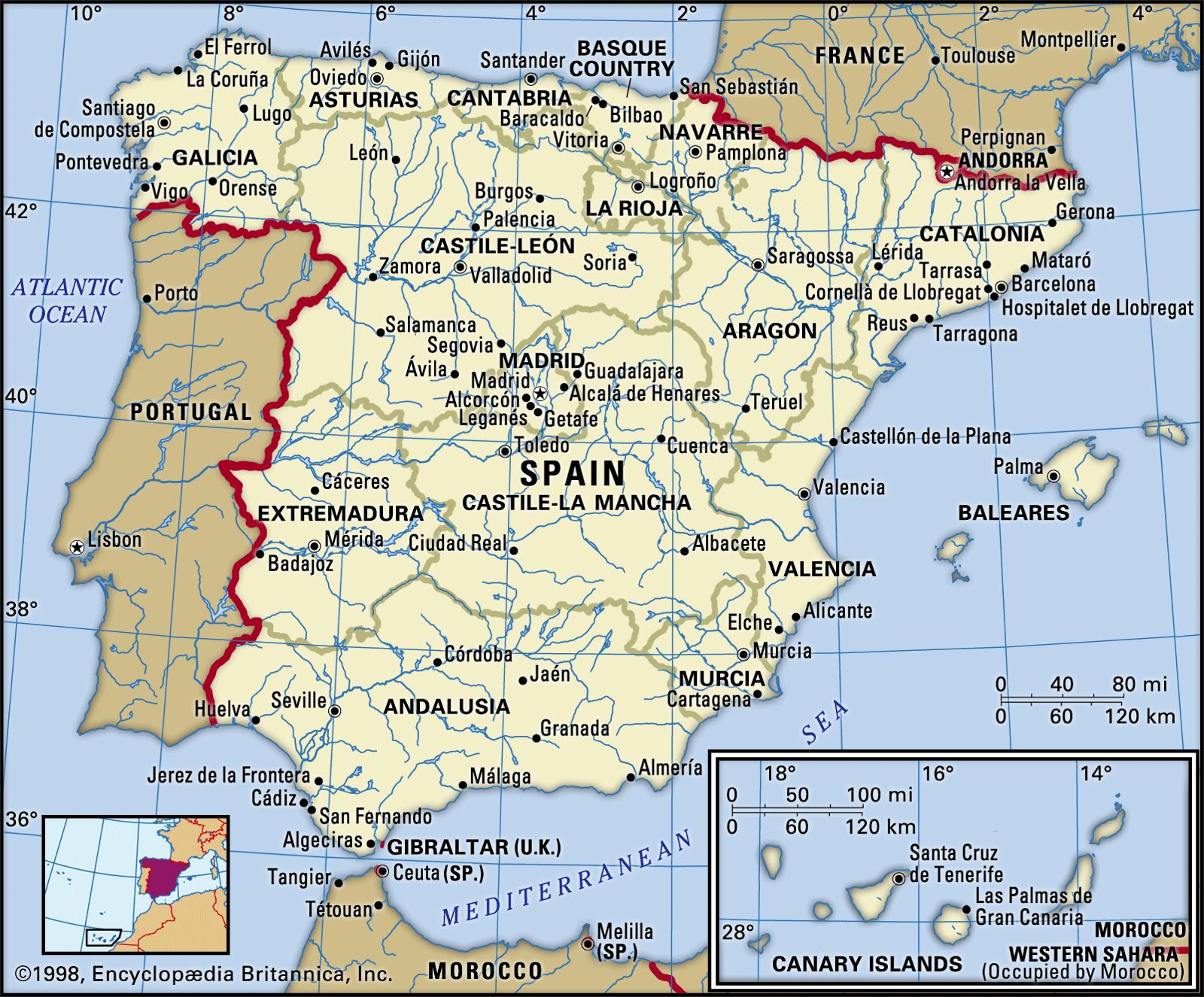In the grand tapestry of European geopolitics, threads of solidarity, strategy, and dilemma are intricately woven together, painting a complex picture of unity and discord. At the heart of this dynamic tableau is Spain, a country renowned for its rich history and vibrant culture, now finding itself at a crossroads of decision and difference. In a revelation that has sent ripples across international waters, Spain stands divided over a proposition involving a sum as staggering as it is telling - €1 billion in military aid to Ukraine. This monumental figure brings to the fore not just an issue of financial magnitude but opens a Pandora’s box of strategic, ethical, and political considerations. As Spain grapples with this divisive issue, the global audience watches, waits, and wonders how this narrative of solidarity and strain will unfold in the chapters of contemporary history.
Spain’s Government at a Crossroads: The Debate Over €1 Billion in Ukraine Military Aid
In the corridors of power in Madrid, an intense debate has taken center stage, throwing a spotlight on what can only be described as a pivotal moment for Spain’s foreign policy and its obligations to international alliances. At the heart of this discourse is a proposal to send €1 billion in military aid to Ukraine, a gesture of solidarity in the face of aggression but also a move that has opened a Pandora’s box of opinions within the Spanish government. On one side are those who argue that this aid is not just about fulfilling NATO commitments; it’s an essential support in the fight for democracy and sovereignty. Opposing them, critics within the government caution about the long-term implications of such a hefty monetary contribution, raising concerns about national defense priorities and economic ramifications.
The debate is not just a simple dichotomy of for or against; it has nuanced layers that reflect broader tensions within Spain’s coalition government. Proponents underscore the importance of presenting a united European front against external aggression, citing Spain’s role in championing democratic values on the global stage. Meanwhile, dissenters highlight a series of critical questions:
- Economic Impact: How will this substantial financial aid affect Spain’s budget, especially in areas like healthcare, education, and social services?
- Military Priorities: With a significant portion of the budget earmarked for Ukraine, what are the potential trade-offs for Spain’s own military capabilities and readiness?
- Diplomatic Relations: How might this aid influence Spain’s diplomatic relations with other nations, particularly those advocating for a more cautious approach to the conflict?
| Concern | Proponent View | Critic View |
|---|---|---|
| Economic Impact | Investment in global stability is paramount, and this aid will bolster Spain’s position on the world stage. | The cost is too high during a time of domestic economic uncertainty; funds should be allocated to internal priorities. |
| Military Priorities | Supporting Ukraine is a strategic defense interest that complements Spain’s military objectives. | This decision diverts critical resources and focus away from Spain’s own defense needs. |
| Diplomatic Relations | Provides an opportunity to strengthen ties with NATO and EU nations, showcasing Spain as a reliable ally. | Risks alienating key partners who favor a more balanced or diplomatic approach to conflict resolution. |
This discord within Spain’s government is a reflection of the broader global dilemma on how best to respond to crises that, while geographically distant, ripple through international politics, economies, and societies. As Madrid navigates these choppy waters, the decision over the €1 billion aid package stands not just as a financial calculation, but as a statement of Spain’s values, priorities, and the legacy it seeks to build on the world stage.
Navigating the Fiscal Implications: The Cost of Commitment in Times of Peace and Conflict
In the tapestry of global politics, the threads of financial commitment weave a complex picture, especially when it comes to backing international endeavors in peace and conflict. Recently, Spain finds itself at the heart of such a dilemma, grappling with the decision to support Ukraine with a substantial €1 billion in military aid. This decision has not only illuminated the varying perspectives within the Spanish government but also underscored the multifaceted nature of international aid. On one hand, there’s a palpable desire to uphold democratic values and international law; on the other, there’s a pressing concern over the fiscal health of the nation, especially in a time when economies worldwide are still reeling from the effects of a global pandemic.
As the debate rages on, the economic discourse spans several critical points. Firstly, the definition and distribution of funds become a contentious issue. The direct cost of military aid is “very high”, but it’s the indirect costs and benefits that paint a fuller picture. These include potential boosts in international standing, stronger alliances, and possibly beneficial trade negotiations in the future. However, critics argue about the burden on taxpayers and the potential diversion of funds from domestic programs.
| Aspect | Viewpoint 1: Pro-Aid | Viewpoint 2: Anti-Aid |
|---|---|---|
| Economic Impact | Boosts international relations, potential economic returns in long-term trade agreements | Immediate financial strain, risk of higher taxes, and curtailed domestic spending |
| Political Standing | Solidifies Spain as a key defender of democracy and international law | Could strain relations with opposing countries, risk of becoming a target |
| Moral Obligation | Supporting a nation in conflict upholds global human rights standards | Questionable allocation when domestic challenges persist |
Undeniably, the government’s split over whether to proceed with the aid package is a reflection of deeper, underlying economic and ethical considerations. While the allure of bolstering international presence and diplomacy is tempting, the stark reality of fiscal implications cannot be overlooked. Balancing the scales between moral responsibility and economic viability remains a daunting task, leaving Spain on the precipice of a decision that will reverberate beyond its borders.
Towards a Unified Front: Strategic Recommendations for Balancing Aid and Diplomacy
In the intricate ballet of international relations, nations often find themselves at the crossroads of providing aid and navigating diplomatic waters with care. The situation facing Spain as it deliberates over the decision to extend €1 billion in military aid to Ukraine is no exception. This substantial package underscores the broader challenge of harmonizing support with the strategic imperatives of diplomacy. The apparent division within Spain’s government highlights not just internal policy debates but reflects a microcosm of the complexities faced globally in similar scenarios.
Strategic Recommendations:
-
Foster Dialogue Within: Before projecting unity and support externally, it’s crucial that Spain achieves a consensus internally. This includes facilitating open dialogues among all parties involved, ensuring that decisions are well-considered and representative of a collective stance. A divided front can undermine the perceived commitment and stability of aid extended internationally.
-
Balance Aid with Diplomatic Efforts: Aid, especially of a military nature, should be balanced with rigorous diplomatic efforts aimed at conflict resolution. Supporting Ukraine’s immediate needs while engaging in diplomatic avenues to seek peaceful resolutions constitutes a dual approach where aid does not overshadow the pursuit of diplomacy.
| Strategic Element | Objective | Implementation |
|---|---|---|
| Internal Consensus | Unified National Stance | Inter-party Dialogues & Briefings |
| Diplomatic Engagement | Peaceful Conflict Resolution | International Forums & Bilateral Talks |
| Military Aid Measurement | Sustainable Support | Assessments & Adjustments |
The premise is that aid, in conjunction with diplomacy, should aim not just to support but also to empower. By creating a roadmap that outlines the escalation and de-escalation of aid based on diplomatic progress, Spain can maintain a balanced stance. This approach ensures that aid fortifies diplomatic efforts rather than supplants them, fostering a landscape where dialogue can pave the way to peace and stability.
The Ripple Effect: Anticipating the European Response to Spain’s Decision on Ukraine Support
In the corridors of European power, Spain’s recent declaration to potentially funnel €1 billion into Ukraine as military aid has set off a wave of anticipation and concern. This bold step, reflecting a strong commitment to supporting Ukraine amidst its ongoing conflict, has however not been free from internal discord within the Spanish government. The rift is emblematic of the broader hesitations some European nations face, caught between a moral imperative to support an embattled democracy and the pragmatic strains of military expenditure and geopolitical repercussions. The decision by Spain, therefore, is more than a gesture of solidarity—it’s a litmus test, sending ripples across the continent as each member state grapples with how to align their foreign policies with the realities of an evolving conflict landscape.
The European Response: A Tapestry of Solidarity and Caution
As the news of Spain’s potential commitment trickles down, it prompts a mixed palette of reactions across Europe. Below is a preliminary overview of the varied stances emerging within the EU:
- Germany: A commendation of Spain’s decision, viewing it as a step towards a unified EU stance on Ukraine, yet cautious about escalating military involvements.
- France: Supportive of Spain, emphasizing the importance of European solidarity but also advocating for a diplomatic resolution to the conflict.
- Poland: Strongly in favor, urging other EU members to follow suit and escalate aid, reflecting Poland’s frontline sense of urgency towards the Ukrainian crisis.
- Italy: Voicing concerns over budgetary strains and the long-term impact of heightened military spending, indicating a more reserved stance.
This complex mosaic of reactions underscores the intricate balance each nation is attempting to strike. With the situation still unfolding, here’s a simplified view of the potential financial contributions being discussed across select EU members following Spain’s announcement:
| Country | Potential Contribution (€) |
|---|---|
| Germany | 1.5 Billion |
| France | 1 Billion |
| Poland | 500 Million |
| Italy | Undecided |
This scenario paints a vivid picture of the challenges and considerations that lie ahead. As Spain navigates its internal divisions, its European allies are prompted to reassess their own positions, potentially setting the stage for a more cohesive or fragmented European response to the Ukraine crisis. What begins as a national decision transcends borders, showcasing the interconnectedness of today’s geopolitical dynamics and the shared responsibilities that nations, especially within the EU, hold toward international crises.
Final Thoughts
As the sun sets over the picturesque landscapes of Spain, its government stands at a crossroads, mirroring the troubled horizon with a debate that pierces the very core of its solidarity. The proposed €1 billion aid package for Ukraine opens a Pandora’s box of strategic, ethical, and economic dilemmas that have split opinions at the heart of Spanish politics. This debate is more than a matter of fiscal logistics or geopolitical strategy; it is a reflection of Spain’s position and identity on the global stage as it grapples with the complexities of international stewardship in tumultuous times. As discussions unfold and decisions loom, Spain finds itself at the epicenter of a pivotal moment, balancing on the thin line that divides obligation from discretion, empathy from pragmatism. Where the balance will tip remains to be seen, but one thing is clear: the outcome will resonate far beyond the walls of the government’s chambers, echoing through the annals of Spain’s history and its role in the broader narrative of our interconnected world.




